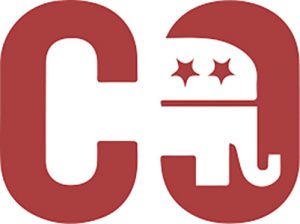by Jaye Sudar
WALSENBURG- February 3rd saw the Peakview cafeteria packed with board members, teachers from various schools and the public to listen to thoughts on the budget cuts to the district. With a 10% budget cut from the state still lurking in the wings for next year′s budget, the district decided to get input from as many sources as possible.
Surveys were sent out to the schools and were due on Thursday. Schools brought the information they had to hand even though the surveys were not complete. Over four pages of flip chart paper were covered with ideas for amending the 2010-11 budget. Some were serious and others comical.
A suggestion that brought a smile to the faces of the crowd was that of students and teachers bringing their own roll of toilet paper. This digressed into a discussion of school supplies in general. Buying in bulk, cooperating with BOCES, and shopping locally′ to avoid transport costs were brought up.
School closures sparked heated discussions. Washington school, while seemingly empty, houses the administration for the district, O & E, the Historical Society library and BOCES. In truth, it is at 95% occupancy and some of those entities pay rent to the district. Some lobbied for the closure of Gardner school. That was quickly shot down as Erin Jerant stated, “Gardner is not getting closed.” The school as a small rural attendance center brings in more money per pupil to the district. When questioned whether it was worth it, Aaron Harper, a Gardner School parent, suggested increasing the population of Gardner school via busing or car pooling. Gardner principal, Linda Bennett agreed with him and added to the idea of increasing Gardner′s enrollment. The suggestion, which if implemented would increase the per student funding, was an idea that the board and many present at the meeting approved as an excellent idea. Gardner school, as one of the highest CSAP rated schools in Southern Colorado, is an asset to the district.
Other suggestions were to change or eliminate bus routes in the district, more fund raisers, better use of volunteers, elimination or change in the sports and other programs, cutting field trips, eliminate inservice days, conserve electricity, decrease aides, defer benefits and change the school calendar and school day. Grants were mentioned as another way to help fund sections of the district.
Superintendent Doyle made a point to state that many of the items mentioned during the nearly three hour discussion were only possible if the state changed laws governing schools and budgets. For example, it is required by state law that each district sets aside $25,000 for food service each year. For some districts, this is not an issue. For others it is. There were others mentioned that tie the hands of school districts that need voters to lobby their congressmen to change.
Teachers from Gardner school suggested giving one free day in the style of a furlough day. Doyle stated that this would have to be part of the negotiated teacher agreement and that it would be discussed then.
Another measure mentioned was that of another bond issue being set before the voters to increase the mil levy that funds the schools in the district. This is an interesting idea in that State and Federal funds interplay with locally raised funds. For example, if a district funds itself with 48% local funds, the State and Federal funds will step into provide the remaining 52%. When the mill levy increase was put forth in the 1990′s, it would only have increased the tax burden by $6 to $10 per household paying property taxes.
While all of these suggestions had merit, nothing has yet been decided. If you have any further suggestions or opinion, please bring them to the district office at Washington school.




